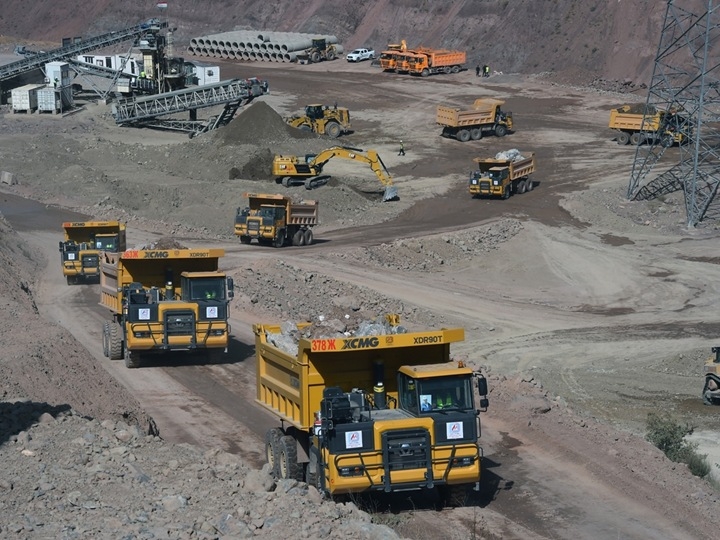Is it possible that it is the potential of cryptocurrency mining that prevents support for the Rogun hydroelectric power station construction project in Tajikistan from being curtailed? After all, international financial organizations persistently rely on this megaproject, despite financial and environmental warnings:

Despite much evidence of high levels of financial and environmental risks, the World Bank decided to become the main financial sponsor of the Rogun hydroelectric power station project in Tajikistan, approving an initial grant of $350 million to complete the first stage of construction. Following the World Bank, the Asian Infrastructure Investment Bank (AIIB) announced a loan for the construction of the dam in the amount of $270 million, and the Kuwait Fund for Arab Economic Development provided the project with a credit line of $100 million, the first tranche of which had already been provided.
Some analysts believe that the potential of the Rogun hydroelectric power station as a cryptocurrency mining site could be a decisive factor in ensuring the financial viability of the project to attract international financing.
Rogun hydroelectric power station should become the tallest dam in the world with an annual generating capacity of 3,600 megawatts, which could turn it into a chicken that lays golden bitcoin eggs. «Taking into account the gigantic volumes of electricity generated, the mining capacity at the Rogun hydroelectric power station should be simply fantastic», — notes Alexander Kolotov, regional director of the international environmental coalition «Rivers Without Boundaries».
In a letter recently sent to another public environmental organization, CEE Bankwatch, World Bank officials defended the Rogun Hydroelectric Power Station as a potentially «transformative clean energy project that would improve domestic and regional well-being and contribute to the decarbonization of regional energy networks in Central Asia, provided that it will be managed within a robust macroeconomic, commercial, social and environmental sustainability framework».
The rapidly changing nature of the electricity market in Central Asia, as well as the prominence of cryptocurrency mining as a source of environmental harm, appear to undermine the World Bank’s case for «clean energy» for the Rogun hydroelectric power station. A 2023 UN report on the environmental impact of cryptomining noted that «, in addition to a significant carbon footprint, global Bitcoin mining activities have a significant impact on water and land resources». The report adds that hydropower, a «energy source with significant impacts on water and the environment, is the most important renewable energy source for the Bitcoin mining network, meeting 16% of its electricity needs».
International financial institutions probably do not want to discuss the connection between the Rogun hydroelectric power station and cryptocurrencies due to poor perception of mining, says Kolotov. » Cryptocurrency mining – is not a story about the development of a country or region, — he adds. – Mining farm does not create jobs for local residents, does not develop the surrounding area. It produces a purely virtual and extremely volatile product».
Officially, the Rogun hydroelectric power station has long been called the driver of economic development in Tajikistan, the poorest state in Central Asia. Currently, it is planned to export about 70 percent of the electricity generated by the Rogun hydroelectric power station, which will bring significant income to the government.
However, public environmental organizations, including «Rivers Without Boundaries», warn that soaring construction costs and the growing efficiency of solar and wind power threaten to make Rogun financially uncompetitive even before it can reach its maximum generating potential. The cost of construction of the Rogun hydroelectric power station in accordance with its current technical characteristics now amounts to $6.4 billion and is expected to continue to grow.
One of the problems of the Rogun hydroelectric power station is that at least ten years will pass before it is fully put into operation, while its main potential consumers need additional electricity now to alleviate chronic problems with power supply. Therefore, Kazakhstan, which was initially considered as the main consumer of electricity at the Rogun hydroelectric power station, now seems to be moving in a different direction. In October, a referendum approved the idea of building a nuclear power plant in the country. Uzbekistan also has an agreement to build a nuclear power plant with the help of Russia. Kyrgyzstan, too, is reflecting on nuclear power while promoting its own hydropower project called «Kambarata-1», which is projected to produce 2,000 megawatts of electricity per year. Another source of competition for the Rogun hydroelectric power station is the joint initiative of Azerbaijan, Kazakhstan and Uzbekistan to export solar and wind energy to Europe via submarine cable at the bottom of the Caspian Sea, launched in 2024.
A possible example for Rogun is the Bratsk hydroelectric power station on the Angara River in the Irkutsk region of Russia. Local company BitRiver has taken advantage of the relatively cheap electricity generated by the Bratsk hydroelectric power station to quickly expand its activities: the mining company now calls itself the largest cryptocurrency player in Eurasia and one of the largest in the world, despite the fact that sanctions were imposed against it in 2022 by the US Treasury Department.
The transformation of the Rogun hydroelectric power station into a large source of energy for cryptomining gives perhaps the greatest confidence that international investors will receive a return on their investments. But whether the hydroelectric power station will be able to live up to the hopes placed on it as the main driving force of economic growth and prosperity of Tajikistan — is far from such a clear question. Tajikistan is regularly among the least democratic and most corrupt states in the world. » is confident that we will hear about mining capacities at the Rogun hydroelectric power station only when the project budget swells to some completely indecent size, — is sure Chinara Aitbaeva, director of the Kyrgyzstan-based public organization «Nash Vek». – That’s when it will be possible to present the option of creating cryptomining at the hydroelectric power station as an additional payback tool for the » project.




